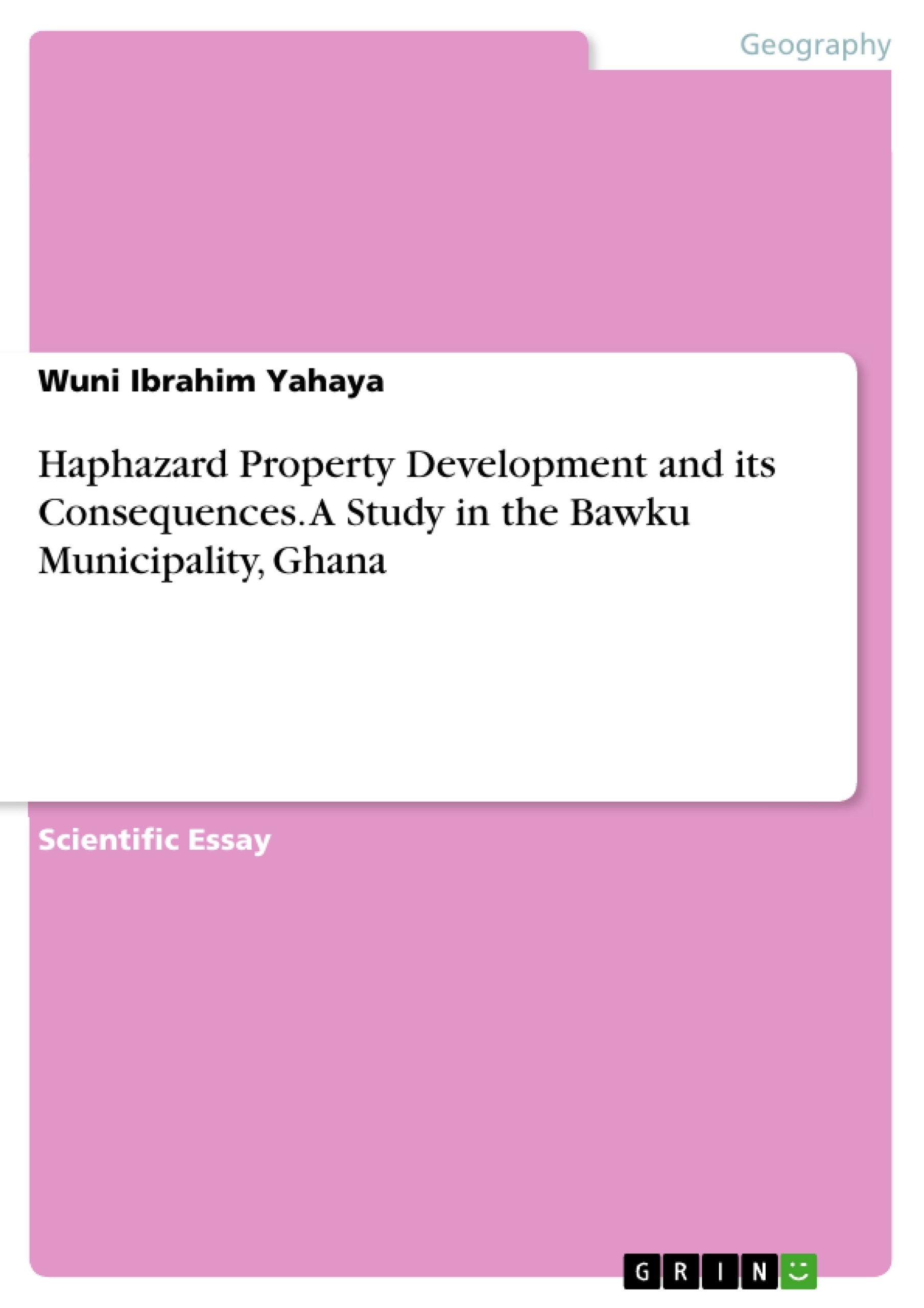This paper seeks to make a paradigm shift from conceptual frameworks to empirical studies to investigate the motivations for and effects of haphazard property development in the Bawku municipality.
The study adopted a case study research design and made use of both qualitative and quantitative data from a field survey and literature review. The primary data was obtained from 120 property owners, the assemblyman of the area and the planning authorities of the Bawku municipality. The study relied on both primary and secondary data. The primary data was obtained through questionnaires, group interviews and focus group discussion and the secondary data was obtained from the literature review.
The motivation for the haphazard property development was categorized into property owners’ perspective and stakeholders’ perspective. From the property owners’ perspective, a number of motivations were identified including ignorance of planning and building regulations 90 (75.00%), nature of the property 80 (66.67%) and corruption 68 (56.67%). From the stakeholders’ perspective, a number of motivations were identified and ranked including indiscipline of the property owners (1st), population growth and unregulated urbanization (2nd) and logistic and capacity gap (3rd).
The paper also identifies a number of effects of the haphazard property development including a threat to future development, destruction of the natural environment and biodiversity and poor planning outlook.
The paper therefore recommends that the concerted effort of both the planning authorities and stakeholders is needed to create awareness of the need to obtain building or planning permits before commencing property development and that punitive sanctions should be meted out to offenders identified, including demolition of such development at the earliest stage of development, conviction, imprisonment or convictions with a fine.
Table of Contents
- 1.0 INTRODUCTION
- 2.0 REVIEW OF RELEVANT LITERATURE.
- 2.1 Factors motivating the haphazard siting of properties
- 2.2 Effects of Haphazard property development
- 3.0 RESEARCH METHODOLOGY AND MATERIALS.
- 4.0 RESULTS AND DISCUSSION.
- 5.0 Conclusion and Recommendations..
Objectives and Key Themes
This research paper aims to investigate the causes and effects of haphazard property development in the Bawku Municipality, specifically focusing on the Bawku Highways area. The study seeks to identify practical mechanisms to prevent or minimize the negative impacts of this unplanned development.
- Motivations for haphazard property development from both property owners' and stakeholders' perspectives.
- The impact of haphazard development on future development, the natural environment, and planning outlook.
- The role of planning authorities and stakeholders in addressing the issue.
- The need for awareness-raising and enforcement of building regulations.
- The importance of sustainable planning practices to mitigate the negative consequences of haphazard development.
Chapter Summaries
Chapter 1.0 Introduction: This chapter provides an overview of the issue of haphazard property development in the Bawku Municipality, particularly in the Bawku Highways area. It highlights the lack of regulation and the potential negative impacts on the area's development.
Chapter 2.0 Review of Relevant Literature: This chapter explores the existing literature on factors motivating haphazard property development and its consequences. It examines various perspectives from different scholars and studies, highlighting the complex interplay of political, physical, institutional, and socio-economic factors.
Keywords
The study focuses on key terms such as haphazard property development, Bawku Highways, Bawku Municipality, planning regulations, building permits, environmental impacts, and sustainable development. It investigates the motivations behind haphazard development and explores the consequences for the community and the environment.
- Arbeit zitieren
- Bsc. Wuni Ibrahim Yahaya (Autor:in), 2016, Haphazard Property Development and its Consequences. A Study in the Bawku Municipality, Ghana, München, GRIN Verlag, https://www.hausarbeiten.de/document/342136


